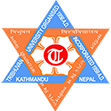Vision of MSICE Program:
Graduates from the MSICE program will be leaders in the planning, design development, implementation and management of Information and Communication technologies to accelerate IT-led development.
Objective of the program:
The proposed program in Information and Communication Engineering is framed with the following objectives:
- To enable students to design, assess and recommend appropriate Information and Communications solutions.
- To provide the students with an opportunity of upgrading their already promising career.
- To enhance the foundation knowledge of the students and develop expertise in specific areas of ICE.
- To equip the graduates with leadership qualities to update, expand and established the ICE related industry for creating new employment opportunities for different levels of manpower.
Course Duration:
The minimum period of full-time attendance required for MSICE course is two academic years. The maximum duration within which a student is allowed to complete the course is as per the norm set up by the faculty of board of the Institute of Engineering.
Admission Requirements:
In order to be eligible for admission to MSICE program, a candidate must:
- Have a Bachelor’s Degree from normally a four year program in Computer, Electronics, Electrical Engineering from T U and other well recognized Universities as well as Degree equivalent to nay of the aforesaid branches of engineering.
- Have undergraduate grades not less than that prescribed by the faculty Board of the Institute of Engineering.
- Secure a minimum score, as prescribed by the Faculty Board, in the admission test.
Selection:
Candidates fulfilling the admission requirements shall be selected for the admission on the basis of merit, which will be assessed in terms of total marks considering the masks secured in entrance exam.
Course Structure:
Course Contents: The course consists primarily of two types of courses; the core courses deal with the fundamental and application in different course areas whereas the elective courses deal with very specific details of the course. A student is allowed to select any relevant four courses from among the elective courses besides five core courses. The consistency of elective selection will be ensured with assistance from the faculty advisor. The course is thesis based and the student has to take a project work of 4 credits and a thesis of 16 credits. The student works under the guidance of the faculty advisor. The detail curricullum can be found here.
Credit System:
The curriculum is organized in the framework of the credit system. Each course has a certain number of credits, which indicates the weightage. The number of credits depends on the contact hours for course. Normally a course is designed for 4 hours of lecture per week. The tutorial on each course may include laboratory, simulation works and assignment works as determined by the department.
Instructional Methods:
The courses comprise of Lecturer, Tutorials, Laboratory works, and seminars, short projects as applicable. The concerned faculty would give the assignments. Reference materials including international publications, journals, handbooks, web sites, related software etc will be used extensively. The course contents are designed in such a way that the students should use considerable self-learning efforts. Innovative approaches and ideas would be encouraged.
Registration: Every student must register and seriously attempt to complete all the courses including thesis work within two years. A student should take 24 credits of core courses, 16 credits of elective and/ or open elective courses, 4 credits of project and 16 credits of thesis. A student is allowed to take up to 20 credits of courses per semester. The topics of the thesis to be offered by the different faculty members will be floated in the beginning of the second semester. The students will be asked to give their preferences of the topics offered. Alternatively, the students will be asked to give their own topics of interest. The MSICE program committee, considering the preference given by the students and the availability of faculty supervisors, will then assign the students the topics. This will be completed by the end of second semester at the latest.
Qualifying Criteria: To qualify for the Master of Science in Information and Communications Engineering, a student must satisfactorily complete a program of course work of at least 60 credits including an individual thesis of 16 credits.
